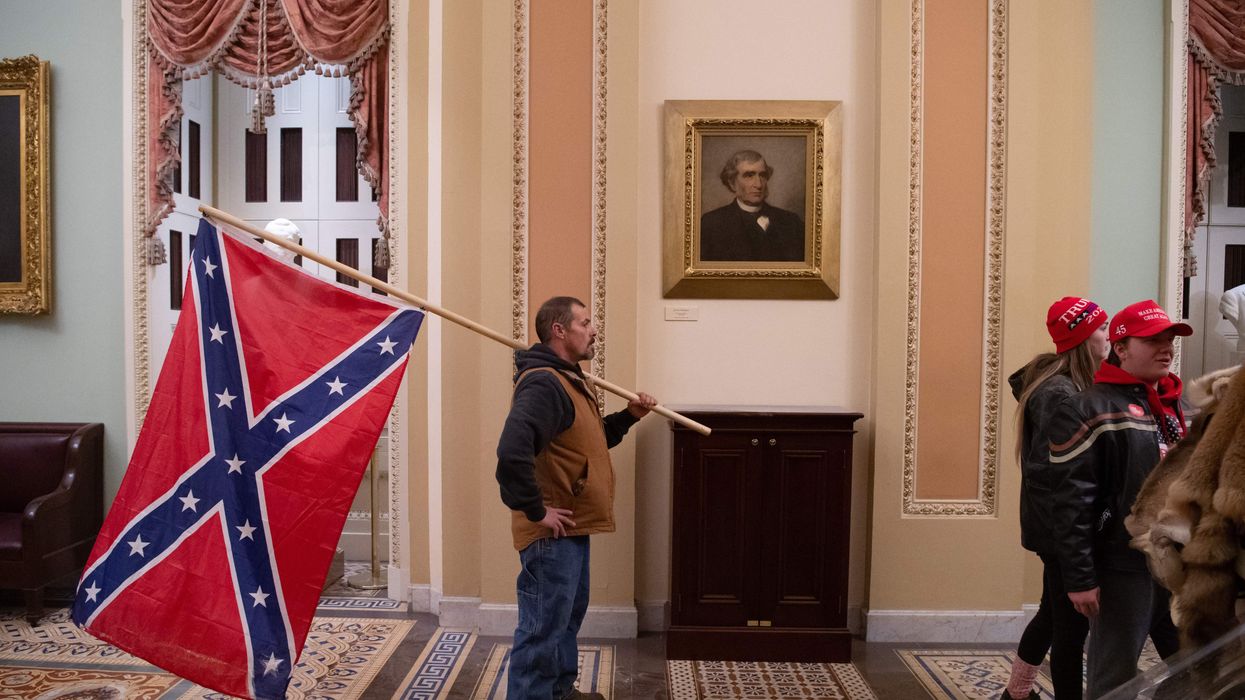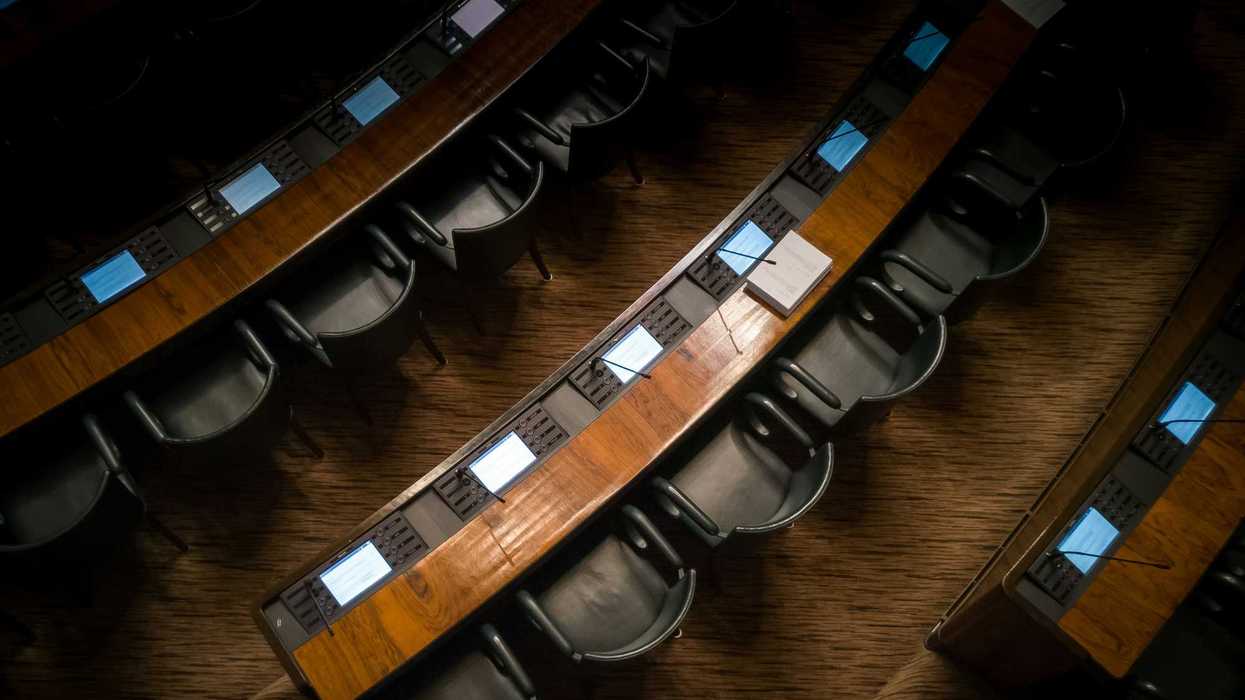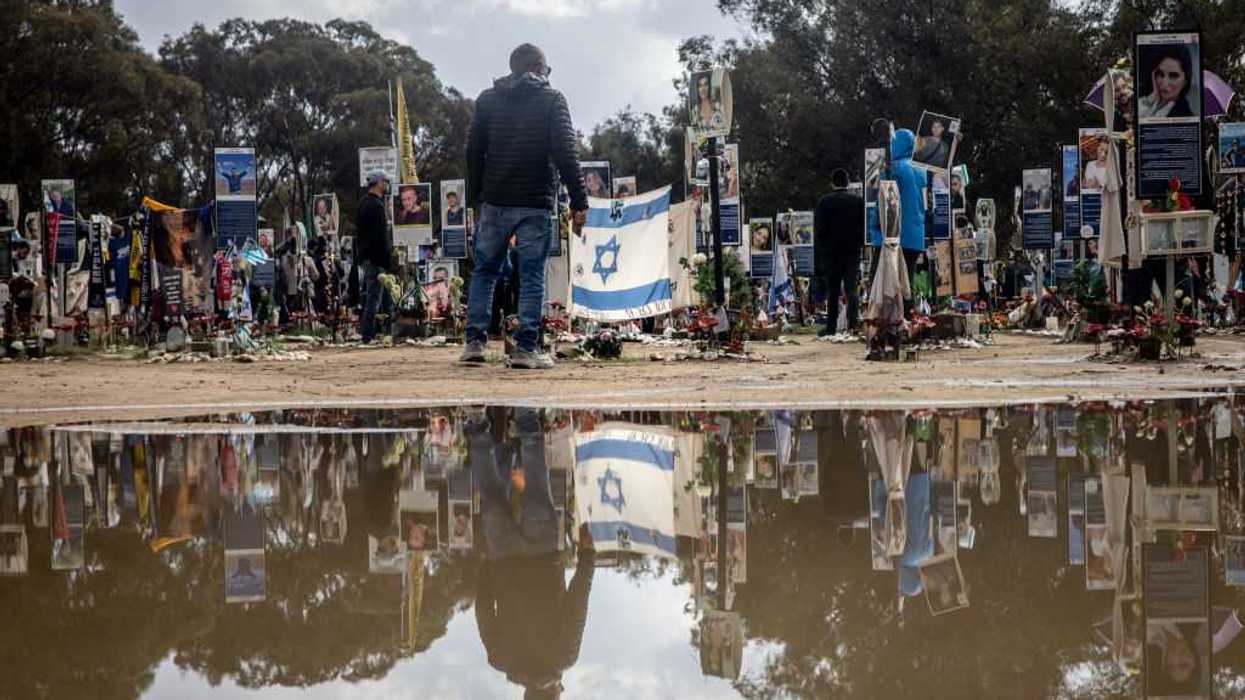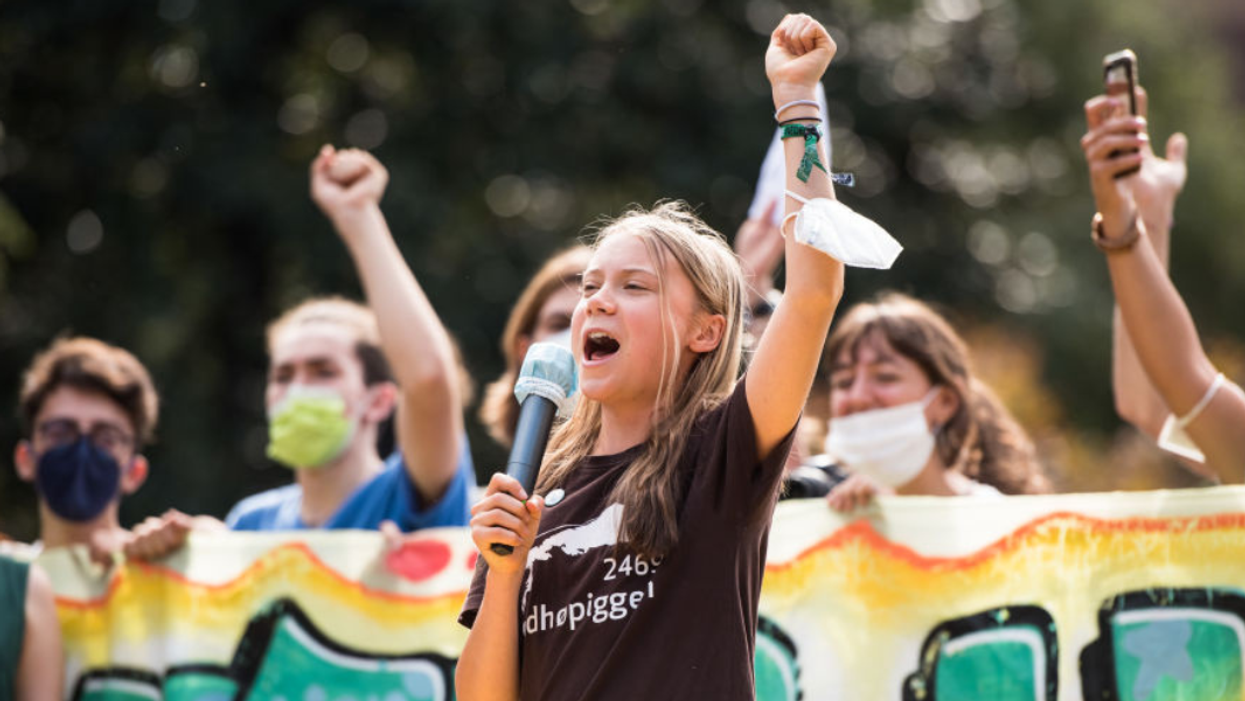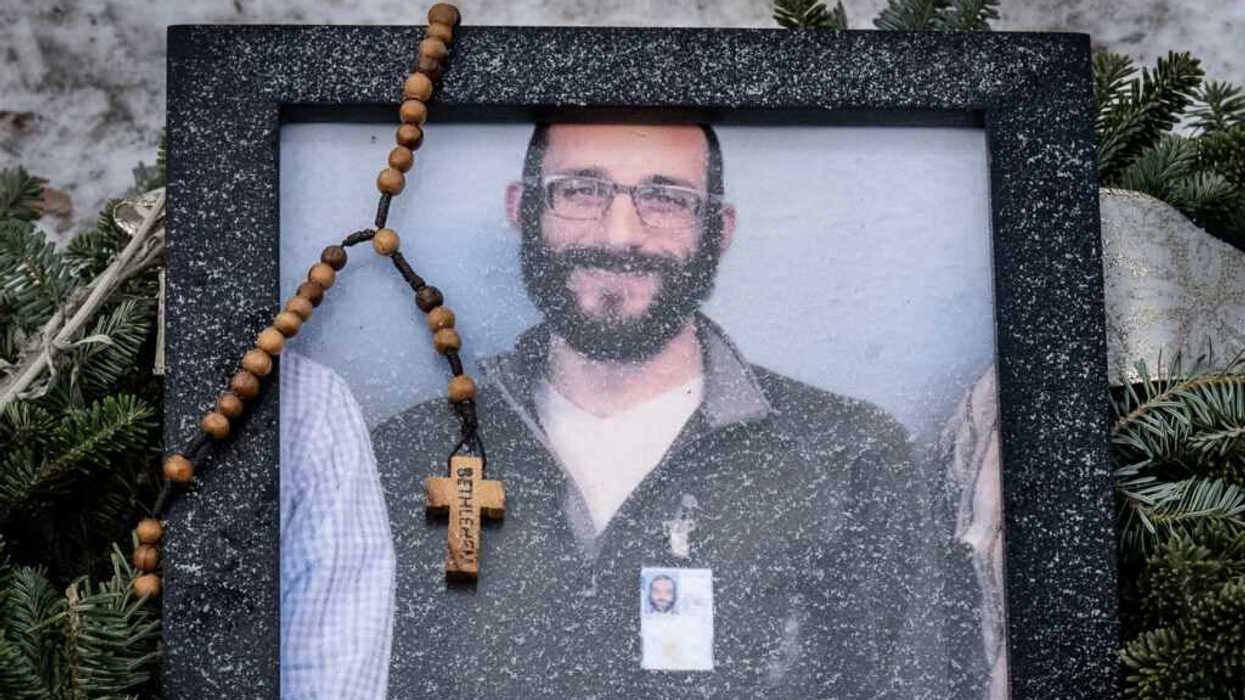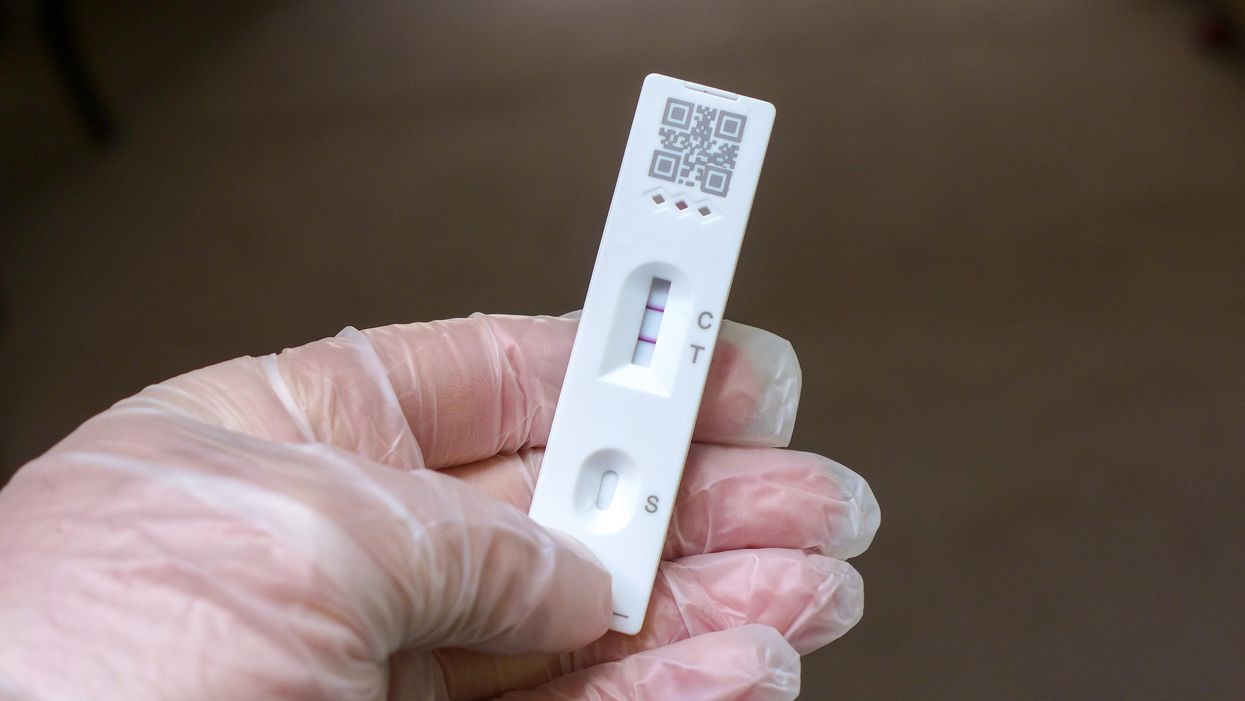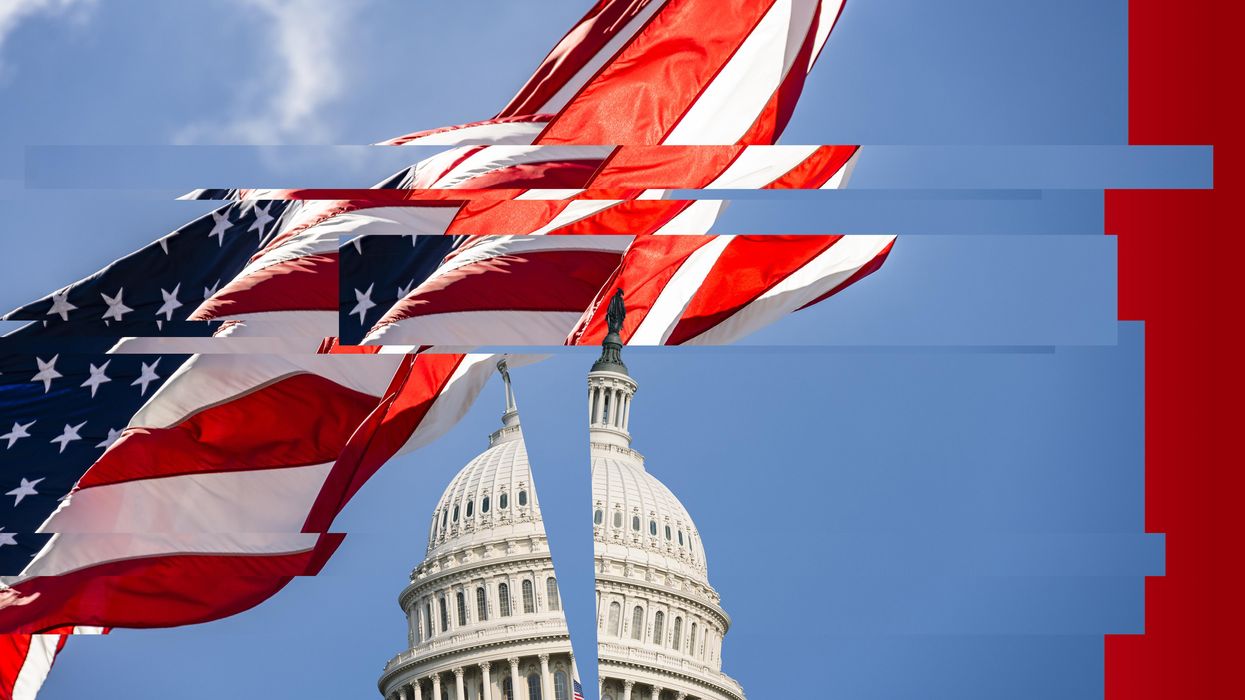Willis is the founder and director of Oregon's Kitchen Table at Portland State University and executive director of the Deliberative Democracy Consortium. She is the author of a textbook, a book of essays and two books of poems.
Here we are, halfway through January, and 2022 still feels stultifyingly like 2021. Some of it, of course, is the relentlessness of a global pandemic, with its refusal to submit to human boredom and universal readiness to move on. Some of it is that we still have less than eight hours a day of sunlight here in the Pacific Northwest, so it feels like a perpetual state of dawn and dusk. Some of it, though, is that the outsized year that was 2021 — a year full of the spectacle of a contested presidential transition, the loss of another 400,000 Americans, and the collective exhale at the conviction of Derek Chauvin — slipped away without the shared catharsis it somehow deserved.
I’m feeling restless and stuck in time. More than ever, it seems as if the turn of the year required something extravagant of us. It required us to take to the streets with pots and pans, to release a million bright lanterns, to build a bonfire in the town square, to declare our intentions, to sing forgotten anthems. What I craved on New Year’s Eve—and am still craving—was a ritual that was as over-the-top as that forsaken and blessed year we just left behind.
But — at least in my neighborhood in southeast Portland — a New Year’s spectacle was not in the cards. Instead, I made a lovely saffron-infused bouillabaisse, and even took a shower and put on a velvet dress, but it was just my husband and me. At midnight, we clinked our glasses, walked the dogs in the cold wind and tucked in beneath our flannel sheets. It was warm and sweet and quiet. Some neighbors shot off a few half-hearted bottle rockets, but that was it. Sure, there was tradition in there, but it was weak sauce for what we were commemorating. And it was almost entirely private.
The pandemic has sped up what was already happening as we desacralized and denuded our day-to-day lives from those collective and public rituals that bind us to moments in time, to one another and to the ineffable. We feel the loss of ritual in our family lives, we feel it in our religious lives, we feel it in our community lives and we feel it in our civic lives.
Less than half of Americans now belong to a religious congregation and nearly a quarter of us declare ourselves to be unaffiliated with any religious tradition at all. I mention this because religious institutions have long been the most reliable source of ritual in the lives of most Americans, and in turn, we have borrowed from those religious rituals to lend gravity to civic occasions.
One could easily make the argument that those largely Christian-influenced ceremonies and symbols are out of date in a modern and pluralistic society, and surely they are But rather than updating our civic rituals to serve all of us, we have turned away from shared ritual almost entirely. As institutions, with their anchoring practices and cultures, are mistrusted more and more, it leaves us on our own with regard to rituals. And yet, we want them. We long for them. And, as it turns out, we strip ourselves of ritual at our own peril. That longing leaves us looking for meaning in all the wrong places.
Three years ago, Andrew Sullivan famously — and controversially — claimed that politics has taken the place of religion in the American soul, or, more accurately perhaps, that partisan politics has become the new American religion. He framed it like this: “And so we’re mistaken if we believe that the collapse of Christianity in America has led to a decline in religion. It has merely led to religious impulses being expressed by political cults. Like almost all new cultish impulses, they see no boundary between politics and their religion.”
As we pass the anniversary of the attack on the United States Capitol, Sullivan seems to be on to something. While those of us operating in the mainstream of American civic and political life inhabit a sort of placid secularism, marked by practicality, hard work and restrained policy arguments, that is not what we witnessed in the ellipse outside the White House and then inside the Capitol on Jan. 6, 2021.
It all occurred against the backdrop of a largely ministerial (and typically dull) congressional act — counting the electoral votes. Federal law requires that Congress convene a joint session on Jan. 6 following a presidential election in order to open, read and count the electoral votes. The whole business is languid, decorous, and typically takes under an hour from start to finish.
By contrast, those who descended on the Capitol last year showed up ablaze with symbolism and ritual. One of the most visibly organized groups was engaged in a “Jericho March” in support of then-President Donald Trump’s attempt to overturn the election. Those marchers prayed ostentatiously and blew shofars — Jewish instruments made of enormous ram horns — recalling Joshua and the Israelites’ march to Jericho to tumble its walls with prayers and invocations.
ABC News counted nine types of symbols displayed by the insurrectionists, including everything from a white power hand gesture to a Betsy Ross flag. And for the first time in history, a Confederate battle flag was displayed inside the Capitol alongside many American flags.
Of course, all this symbolism has been rightly overshadowed by the fact that a riotous mob overran the Capitol, with at least some of the rioters intending to harm members of Congress and anyone else who got in their way. Pipe bombs were found on the Capitol grounds and near the headquarters of the two major political parties. Insurrectionists beat a police officer with an American flag, and others crushed another officer in a doorway. Capitol police drew their weapons inside the House chambers. Five people died as a direct result of the attack, and four police officers died by suicide in the aftermath. Many offices were ransacked, windows were smashed, and trash and feces were left behind in the building. It felt like a collapse of some sort, like a Rubicon had been crossed, and I could not help but be reminded of these lines from William Butler Yeats’ great poem, “The Second Coming”:
Things fall apart; the centre cannot hold;
Mere anarchy is loosed upon the world,
The blood-dimmed tide is loosed, and everywhere
The ceremony of innocence is drowned
Yes, a tide was loosed, probably long before Jan. 6. So as we recount and reanalyze the stark facts of the attack, there is also something to be learned by attending to the symbolism and ritual on hand before, during and after the insurrection. As Yeats observed, the anarchy loosed on the world is in some deep way tied to ceremony. While ritual is waning in many of our day-to-day lives, leaving us to make meaning alone or in small groups, illiberal and fascistic elements are more than happy to create transcendent narratives that connect to the hopes and fears of increasingly emboldened and radicalized Americans.
This is an old story. And a frightening one. The Nazis co-opted dozens of rituals and generated many of their own, including an attempt to redefine Christmas. Mussolini declared that fascism “was a belief which has reached the level of religion.” And Argentinian strongman Juan Peron immersed his regime in the rituals of the Catholic Church, going so far as to suggest that his late wife be canonized following her death from cancer.
So when anti-democratic forces show up in Washington, D.C., wrapped in ritual and attempting to overthrow a free and fair election, we should probably sit up and pay attention. What do those of us who stand firmly on the side of a pluralistic and multiracial democracy have to offer a ritual-starved nation? What are we doing to sense-make in a world that doesn’t make sense? What are we doing to collectively steady ourselves in the face of a perilous world?
Because I am a ritualist with a ball of incense in one hand and a sparkler in the other, it’s tempting for me to imagine a bold ritualistic counterweight. To believe we can propagate something just as audacious, just as powerful as the roaring beast that rolled into the Capitol last January. Something big, blossomy and showy, yet also inclusive and kind.
But that approach has some very significant downsides, doesn’t it? First of all, it doesn’t seem likely that an upbeat and all-inclusive ritual will move the hearts and minds of Americans. As my husband puts it, “anger sells.” And, maybe I don’t have the heart for it. Or the imagination. Maybe I just live too far from the Capitol to execute the grand gesture. But even more than that, we have to be honest with ourselves because earnest propaganda is still propaganda, and that’s not a lot I want to throw in with.
Recently, I ran across a poem by the Italian poet Valerio Magrelli that I can’t stop thinking about. The first line — after which this essay is titled — begins with “I love uncertain gestures.” It goes on: “someone stumbles, someone else/bangs his glass,/can’t remember.” Yes, I love those things, too. The humanness of faltering, of clomping around in a body. There is something tender and connecting in our imperfections, us stumbling along, desperate to make sense of things. These shoddy gestures are, as Magrelli says later in his poem, “the familiar wobble/of the broken mechanism.”
And perhaps that is where we start to make our way through this. Maybe I should stop obsessing over the grand gesture. Maybe, rather, what we have to offer each other is in the tiny rituals of sense-making. Ones we can start right now. Maybe we need to weave them into our daily lives — the rituals of connection and blessing and saying hello and goodbye. The rituals of gratitude. The rituals of mourning. Perhaps we need to ritualize the grief we feel at 825,000 Americans lost to Covid-19. Perhaps we should bless the workers filling the potholes. And the teachers headed into the classroom. Perhaps we should offer a moment at the beginning and end of each day to recognize the miracle that we are still here, together. Perhaps we should celebrate and lift up every grudging inch of racial progress we have made. And maybe we should ceremonialize the shame we feel when confronted with the legacy of chattel slavery. Perhaps we need to try to make meaning in public, even if it is awkward, even if it feels inadequate for the times.
I know that these tiny sacralizations will not cure all that ails us. There need to be tribunals and select committees and federal courts to mete out clear-eyed justice. We need to stand ramrod straight against fascism and white supremacy and anti-democratic forces wherever they crop up. We need constitutional reform.
And yet, there is still the day-to-day to contend with in this January out time. There are still the millions of small choices we make as we fret over those enormous and sometimes existential questions. If we commit ourselves to sense-make together and to imagine rituals that allow us to celebrate and mourn and throw up our hands in agony and ecstasy, perhaps some small part of our longing for meaning and connection will be slaked. Perhaps we will not be so desperate to take to the ramparts. Perhaps then, as the Italian poet says, “a piece breaks off.” Perhaps, “inside, something dances.”





